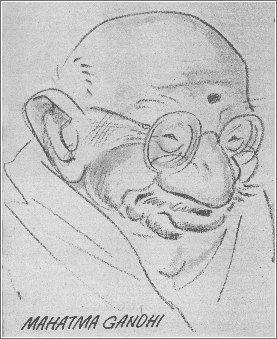Psychopathic founders need an ‘Asoka moment.’, by R. Gopalakrishnan (2022)
Psychopathic founders need an ‘Asoka moment.’, by R. Gopalakrishnan (2022)
There are disturbing company reports of pathologically destructive leadership behaviour—poor governance, discernible fudging, intemperate language, overweening ambition, perpetually boastful talk and so on. To my simple mind, psychopathic is like behaving in a toxic, megalomaniac or narcissistic manner.
Not every founder’s behaviour is psychopathic, but as the cases keep coming, one wonders whether founder-CEOs are prone to this malaise—for example, BharatPe, PayTM, and Zee. Other examples have been Rotomac Pens, Pan Parag, RDAG, Kingfisher, Gitanjali Gems, Café Coffee Day, and Housing.com. Sometimes, the funders drive the founder into psychopathy.
During my career, I served as non-executive director of a start-up company with a founder as MD. It took the board seven long years to be convinced that the founder-CEO was a psychopath with hallucinations about who he was and what he was worth. It took the board another three years to ease him out since they desired no public controversy. I learnt a lesson about the tenure of founder-CEOs: if in doubt, pull the trigger sooner rather than too late, quite the opposite of the view of many founder-CEOs.
The drumbeats around the Indian start-up sector are loud and deafening. Every senior government official lauds the emerging ecosystem and the response through Start-up India. According to a recent NASSCOM-Zinnov report, between 2011 and 2021, India added 25,000 start-ups; 2,250 in the last year when India attracted USD 24 billion of equity investments. 6 lakhs direct and 34 lakhs indirect jobs were created by such enterprises. This array of statistics is overwhelming.
Silicon Valley has its share of psychopaths. In 2020, Maelle Gavet, a veteran of the tech industry, wrote a riveting book, Trampled by Unicorns: big tech’s empathy problem and how to fix it. The book offers an account of the world’s tech start-up—Amazon, Google, Facebook, Twitter, WeWork, Tesla, Airbnb, Uber, not to forget Theranos.
Big tech has progressed humanity’s most noble pursuits but has to grapple with destructive empathy deficit. Gavet says, “We need tech, but a more empathetic tech.” She quotes research by FBI that companies managed by psychopaths tend to decrease productivity and create low employee morale. Gavet argues that psychopathic leaders’ behaviour trickles down and creates psychopathic companies by nurturing an “infantilised culture”, where employees become accustomed to working in “hyper-privileged bubbles in which their every whim is catered to and every need anticipated.” Her view about Steve Jobs, whom many founders try to emulate, is that his legacy has “cultivated an indelible association between being a jerk and a genius.” The 2011 Walter Isaacson biography and the 2015 Netflix movie purport to bring out the real Jobs. I asked a few Indian founders about the negative reports about Steve Jobs. Their response was, “He did not build Apple by being humble and caring about people.”
According to the Hare Psychopathy Checklist, the universally accepted diagnostic tool used to assess this, includes traits such as “a grandiose sense of self-worth, lack of remorse or guilt, poor behavioural controls, pathological lying and a lack of empathy.”
Thus there are two diametrically opposing narratives. Genius-like entrepreneurs who are out to change the world on the one hand, yet who are susceptible to toxic behaviour on the other. There are far far more psychopathic founders than real geniuses. Further, every founder, like medicines and corporate CEOs, has a “use-by date.” The skillsets of a founder-CEO and a profitable-growth CEO are not necessarily the same.
The psychopathy of founder CEOs is not yet at a crisis point for India. The Indian entrepreneurship flower can be nurtured. A former Verizon CEO details ‘watch-for bad habits’—not building trust and integrity, focusing on things that don’t matter, shirking being a role model, not reinforcing what is really important, trying to be popular, getting caught up with self-importance, burying one’s head-in-the-sand, and not fixing root cause of problems.
Entrepreneurship associations and training institutions can help by emphasising positive behaviour as a necessary adjunct to the innovation role, like SINE at IIT Bombay and TiE do through their mentorship network and counselling. I tried to make a small contribution through a 2021 book, Wisdom for Start-ups from Grown-ups. An empathetic Indian start-up atmosphere is desirable.
It is instructive to read the book, Myth of the Entrepreneur, by Ravi Kailas with Cathy Guo. He was a serial entrepreneur who built and scaled ventures spanning telecom, software, financial options and more. During the hustle and bustle of his journey, he got his ‘Asoka moment.’ After excelling as a traditional king or eight years, King Asoka watched with great pain his destruction of the fertile lands of Kalinga. This set Asoka, as is well-known to Indians, on a journey to express his inner revolution.
Likewise, entrepreneur Ravi Kailas realised that the pearl jewel is formed around a grain of sand. That grain of sand catalyses the pearl into being. Once the beautiful pearl has been formed, the grain loses its identity. The grain of sand is then significant only by its absence. Indian founders, who created long-lasting enterprises, did exactly the same—Jamsetji Tata, Jamnalal Bajaj, Pirojsha Godrej, and Ghanshyam Das Birla.




Comments
Post a Comment